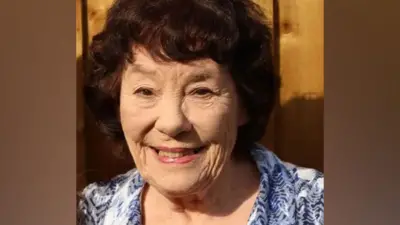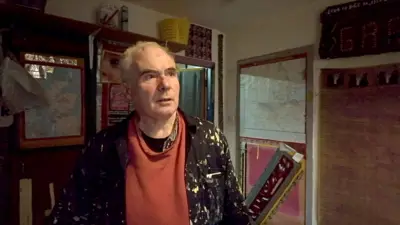We've updated our Privacy and Cookies Policy
We've made some important changes to our Privacy and Cookies Policy and we want you to know what this means for you and your data.
Southern Health Trust develops new minor stroke service
Image source, Pacemaker
The Southern Health Trust has developed a service for patients with minor-stroke or "stroke mimic" symptoms.
The service will treat some patients virtually or without overnight stays.
About 600 patients are admitted to Southern Trust hospitals each year with strokes.
However, about one third of stroke-related admissions relate to minor strokes or "mimic" symptoms, similar to those of strokes, including hypoglycaemia and migraine.
A hospital stay is not always necessary in such cases.
The team is based at Craigavon Area Hospital and includes a consultant stroke specialist, a specialist nurse and a specialist physiotherapist.
They will work closely with emergency department and inpatient staff to identify patients suitable for their support.
Brian Beattie, director of adult community services for the trust, said: "Stroke is a serious life-threatening medical emergency, so rapid assessment of all suspected patients is vital to ensure they get the most appropriate treatment.
"We now have the very latest technology at both Daisy Hill and Craigavon hospitals to help us diagnose which patients need admission for acute stroke treatment and to identify those who will benefit from another service.
"Given the choice, most people would avoid a hospital admission and indeed recover better at home.
"Now if a moderate or severe stroke has been ruled out, the patient may be discharged home and referred back as an outpatient to be monitored virtually or to the ambulatory team for follow up tests, advice and specialist support as required."
Southern Trust patients requiring acute stroke treatment will be transferred to Craigavon Area Hospital or the Royal Victoria Hospital.
Those who need continued rehabilitation will return to their local stroke/rehabilitation ward at Daisy Hill, Lurgan or South Tyrone hospitals.
Top Stories
More to explore
Most read
Content is not available








